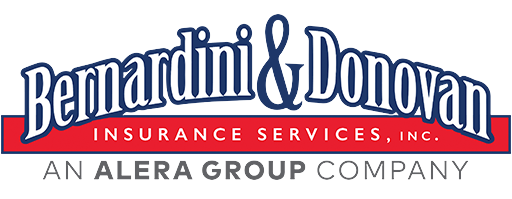 Purchasing group health insurance as a small business owner can be a rather intimidating task. This is especially true when you try to do it all on your own without any help. However, the process can be made a lot easier and less daunting if you let a professional agent assist you in choosing the right group health insurance plan for your small business.
Purchasing group health insurance as a small business owner can be a rather intimidating task. This is especially true when you try to do it all on your own without any help. However, the process can be made a lot easier and less daunting if you let a professional agent assist you in choosing the right group health insurance plan for your small business.
In this two-part article, Bernardini & Donovan Insurance Services will break down what you need to know about group health insurance for small businesses. We’ll discuss what a small business is considered, why group health plans are important, some of the types of health insurance plans offered by small businesses, employer-sponsored health plans and things to consider, and finding an appropriate health insurance agent for you and your business.
There are a number of variables to consider when purchasing group health insurance. While there are many business insurance options available, your selection will be determined by your needs. That’s why we’re going to discuss important variables such as: determining whether your business is considered a small business or a large business; the health insurance plans available for small businesses; ideal plans based on your business; and more.
In this first part, we’ll be focusing on small businesses versus large businesses, why group health plans are important, and the types of health insurance plans offered to small businesses. In the next article, we’ll address employer-sponsored health plans (and things to consider) and how to find an appropriate health insurance agent for you and your small business.
Small-Group Employer vs. Large-Group Employer
As a small business owner, one of the most important considerations that you have to make will deal with the type of insurance that you offer to your employees. But, how do you know if your business is considered a small group employer or a large group employer?
The Affordable Care Act divided employers into two categories: small group and large group. There is a general dividing line at 50 full-time employees or equivalents, although there are some benefits specifically aimed at businesses with 25 or fewer full-time employees. A business that employs 50 or less full-time employees falls under the small group category. However, the full-time employee doesn’t necessarily have to be one individual.
A business can have as many part-time employees as it wants as long as the equivalent number does not exceed 50. In other words, an employer can have four part-time employees working ten hours a week for a total of 40 hours worked. These four people working a total of 40 hours collectively, is calculated as one employee. There can be any variation on this theme to qualify for the small group coverage as long as the sum total is no more than 50 full-time employees.
A full-time employee or equivalent is an employee who averages at least 30 hours per week or 130 hours in a calendar month. You must calculate your hourly worker’s service hours based on hours worked and hours of earned paid leave.
If you run a small business with two to 20 employees and are looking for guidance for your small business’ group health insurance, Bernardini & Donovan Insurance Services can offer the best and most cost-effective business insurance plans around. We’ll help cut through all of the confusion and unnecessary information so that you can have the peace of mind that comes with knowing that your employees are well protected in the event that something unfortunate should unexpectedly happen.
The Importance of Group Health Plans
In our healthcare perks article, the B&D team talked about how small businesses can attract talented employees through better healthcare perks. It’s no surprise that modern employees are extremely savvy about the bonuses that come with a job. Gone are the days when salary used to be the major competing factor in attracting new talent! Today, it’s as if everything is about healthcare, child care, continued education, retirement accounts, and other related perks.
This is great for both employees and employers. For employees, they can acquire more value than they could in a straight cash salary. For employers, companies can take advantage of a variety of tax incentives and breaks to provide these bonuses and remain competitive.
When it comes to establishing the ideal health insurance plan for your small business, consider how your plans benefit your employees.
- Vision, Dental and Prescription Services. Though they may be optional, offering vision, dental and prescription services is not expensive and will go a long way towards showing employees that your business is concerned about their health. There’s also another benefit — providing vision, dental and prescription service makes it less likely that employees will go without care, damaging both their own health and their productivity. Mental health services and substance abuse services offer similar benefits.
- Flexible Spending Accounts. Both health care flexible spending accounts and dependent care flexible spending accounts are extremely important perks for modern businesses. Employees will be able to set aside money in a tax-advantaged account, much like an IRA, to be used on both their own medical expenses and their child’s or other dependents. Many executive employees and other financially savvy employees specifically look for the flexible spending account option, as it makes more sense to them and will result in more money being acquired by them overall, as they can put tax-advantaged funds towards their medical costs.
- Employee Health Programs. In addition to health insurance, employers can create health programs that promote good health to their employees. Many employees specifically look for these programs when they are learning about a job opportunity. Employee health programs can include everything from healthy provided snacks to an on-site gym, depending on your company’s budget.
Employers can look to their health insurance agency to find out more about what they can do to attract the best up-and-coming talent to their business.
Types of Health Insurance Plans for Small Businesses
- Business Health Insurance Don’t: The “One Size Fits All” Plan. No two employees are the same, this has never been more true than when you begin to take their health into consideration.
Each employee (and their respective family members) will have their own unique considerations, which is why it is important to not opt for a “one size fits all” plan. Instead, engage your employees and take their feedback into consideration.
Try to find a plan that you can customize to fit the needs of the group instead of trying to force the needs of the group to work within the confines of the plan that you’ve selected after the fact.
- Health Savings Accounts. One type of business insurance that has become increasingly popular over the last two decades is the health savings account (or HSA).
For individuals who are enrolled in an HDHP (or “high deductible health plan”) they can open a medical savings account with a number of tax advantages that they wouldn’t get from other types of plans.
Deposits into the account can be made by either the employee in question or by the employer and can be made on a pre-tax basis. The money in the account is then to be used to pay for things like medical bills and other unforeseen expenses related to their health.
One of the primary advantages is that the money continues to roll over each year and does not “expire” in the event that it goes unused for any specific period of time.
Finding Affordable Health Plans for Small Businesses: Bernardini & Donovan
When it comes to educating one’s self on group health insurance for small businesses, there’s a lot of information to consider. Remember that this is the first of a two-part article geared towards group health insurance plans. The goal is for small businesses to feel more confident when it comes to finding a service that suits them and their employees.
Just because you own a business doesn’t mean you should lose money trying to pay group health insurance for your employees. You can find the insurance coverage that works for your company’s budget while letting your employees have the health insurance program they need to stay healthy. If you want to jumpstart the process, feel free to browse the insurance products offered through Bernardini & Donovan Insurance Services.
The B&D team is here to help you find a suitable and affordable healthcare plan as a small business owner. We believe that you should find a healthcare plan that suits you and your budget, and we want to help.
Contact Bernardini & Donovan Insurance Services if you’d like guidance through the process of selecting the appropriate group health insurance for your business. We can help you make the right decision, and we have the right tools to help you find the perfect plan(s) for your employees as well as for your business.
We discussed the difference between a small-group and a large-group, the importance of group health plans, and some of the different types of health insurance plans that could be offered by small businesses. On the next blog, we’ll consider employer-sponsored health plans and how to find an appropriate health insurance agent.


